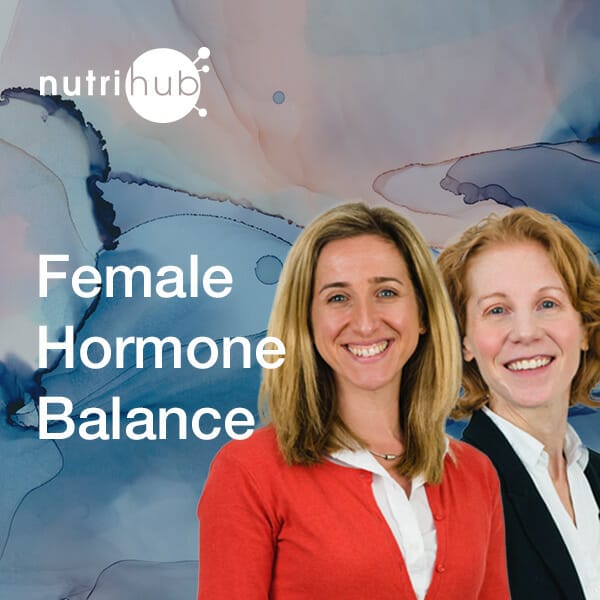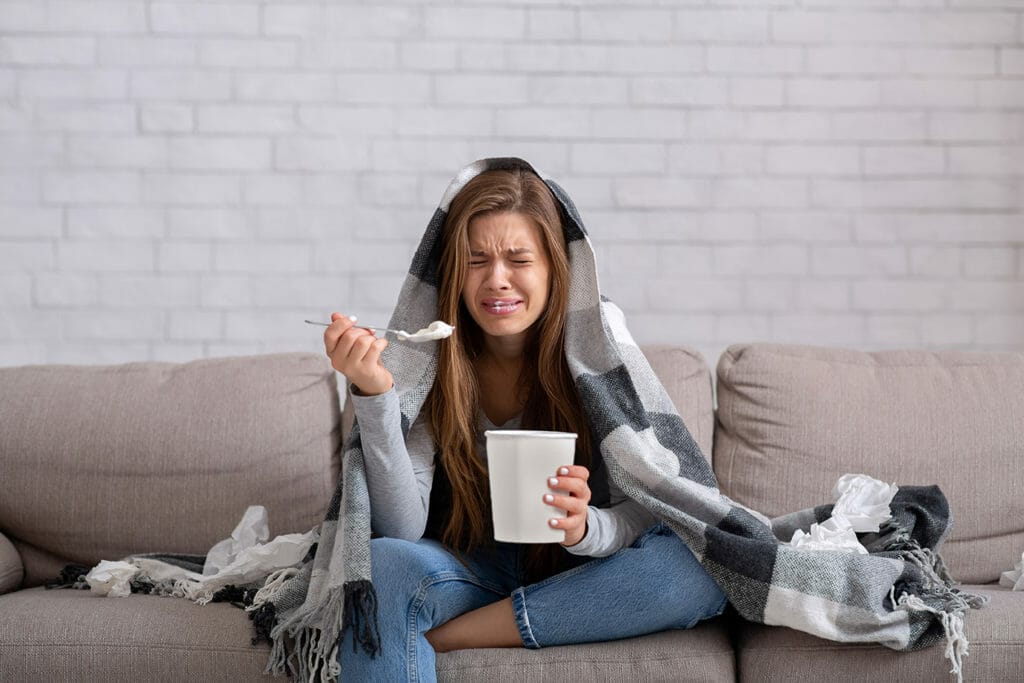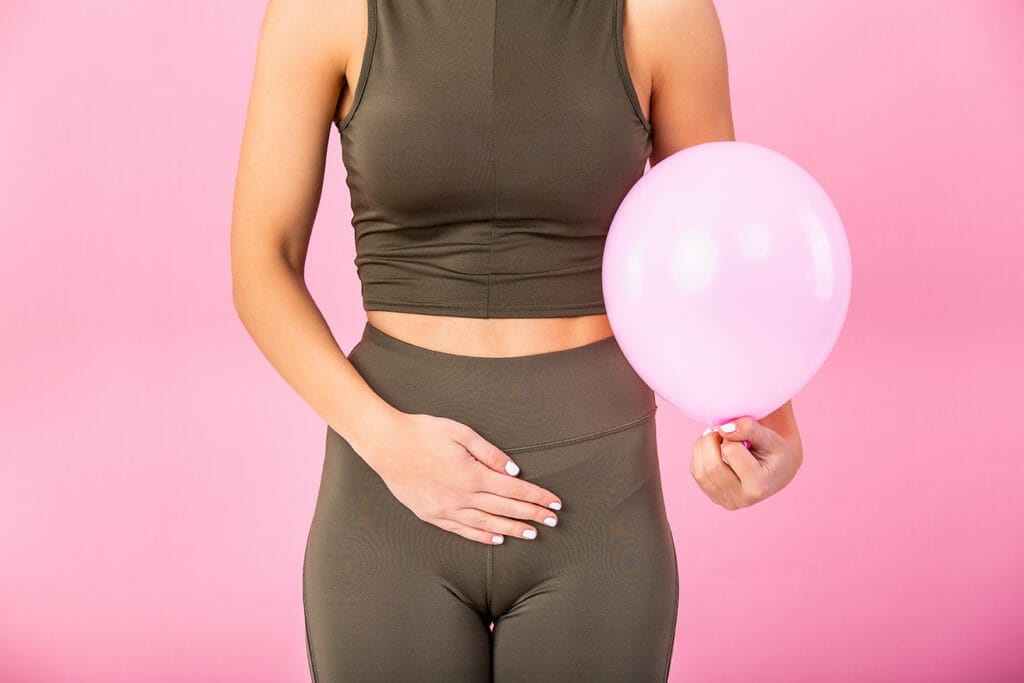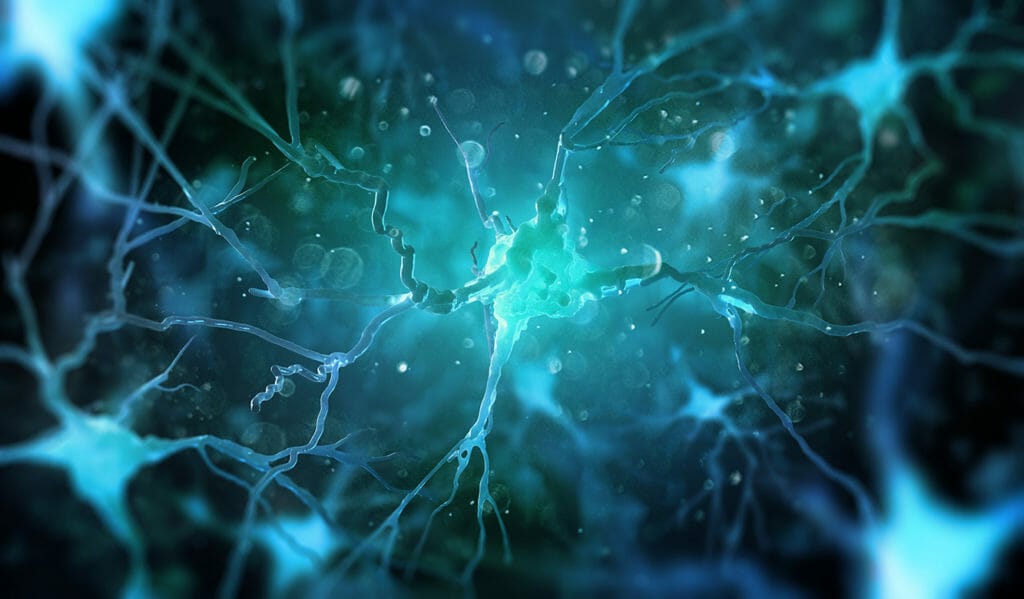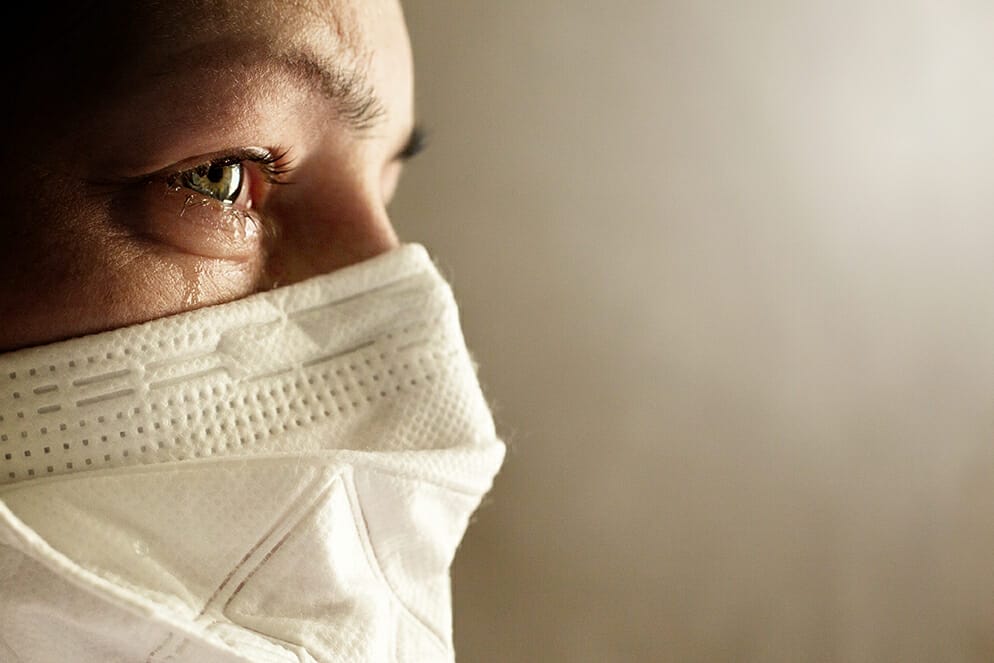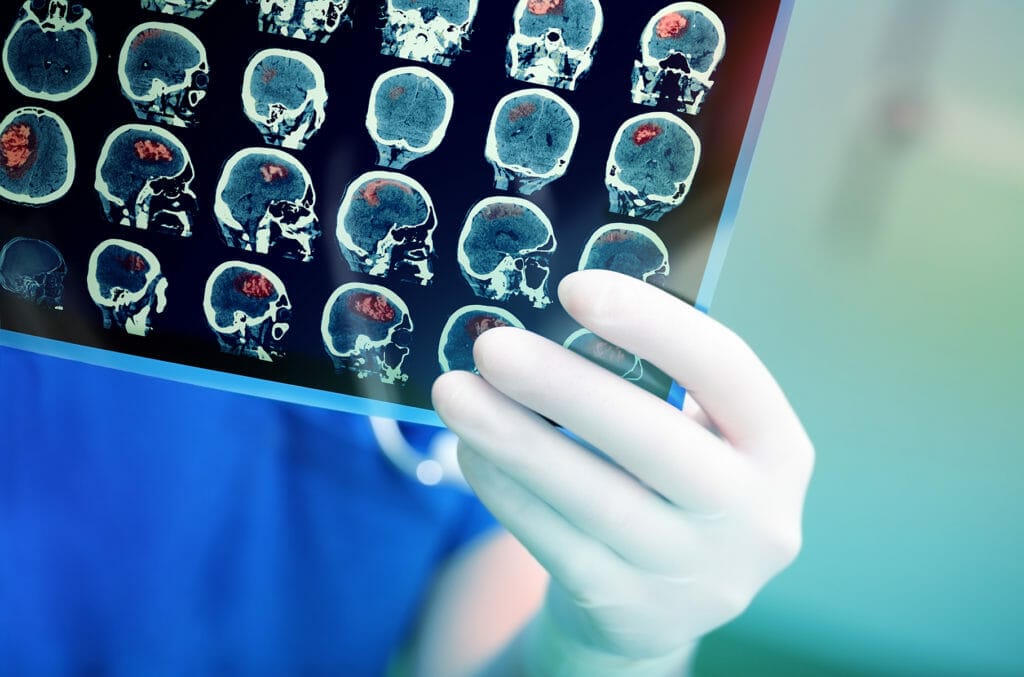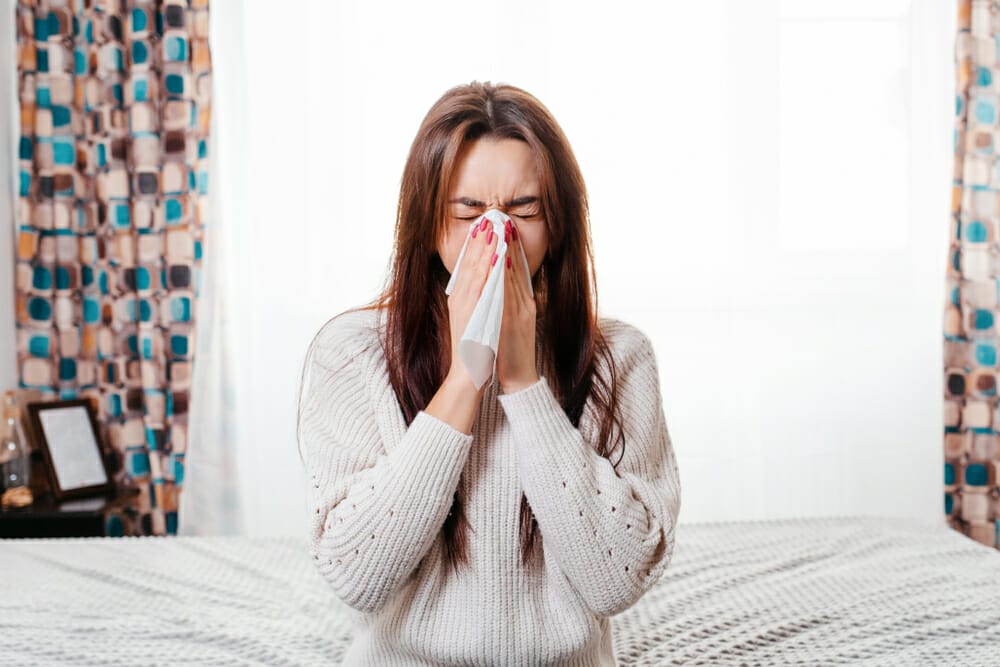Seventy-five per cent of women suffer from headaches, mood swings, bloating, and other problems associated with their menstrual cycles.
Premenstrual syndrome (PMS) can affect women for up to two weeks before menstruation. Common symptoms include fluid retention, pain and bloating, weight gain, breast tenderness, irritability, mood swings and food cravings.
There are several factors thought to contribute to PMS including hormone imbalances, dysfunction of the hypothalamic-pituitary-adrenal axis (high stress), altered serotonin levels, blood sugar imbalances, gut dysbiosis and impaired liver detoxification. Dietary and lifestyle changes can help tackle these route causes and put you on the path to a healthier menstrual cycle.
Start with Diet
The first step is to keep your blood sugar levels steady. High-quality protein should feature at every meal and snack with vegetables and fruit making up the bulk of your plate. Add in some healthy fats at each meal like oily fish, nuts, seeds, olive oil and avocado. Wholegrains provide additional carbohydrate and fibre beneficial for detoxification and gut health
Keep to a Healthy Weight
Over restricting your diet and calories can contribute to irregular periods so check that you are eating enough for your body’s needs. Keep to a healthy body weight. Being significantly underweight or overweight is associated with hormone imbalances.
Exercise – but not too much!

While exercise is beneficial for tackling PMS don’t overdo it! Too much and you will overly stress your body. Aim for at least 30 minutes a day and choose a combination of cardio and strength training.
Love your Gut
We eliminate excess hormones through our stool so having regular bowel movements is important. Research is showing that the gut microbiome has a major impact on hormonal balance so look to include fermented foods in your diet daily (yoghurt, kefir, sauerkraut, kimchi) and plenty of starchy and non-starchy vegetables for fibre.
Rest and Sleep

Disruptions in our circadian rhythms are common around menstruation through the effect of oestrogen on levels of serotonin and melatonin. To get your sleep pattern back on track, avoid bright and artificial light at night and get plenty of sunshine during the day. Set a regular sleep schedule and go to sleep well before midnight.
Avoid Environmental Toxins
Our modern environment is full of chemical toxins, in our food and water, the air we breathe, cosmetics and skincare products we put on our body. Many of these chemicals have the ability to affect our hormones and are called endocrine disruptors. These endocrine disruptors are known to have effects on menstrual dysfunction. Switch to toxin-free skincare and choose organic produce where possible.
Supplement
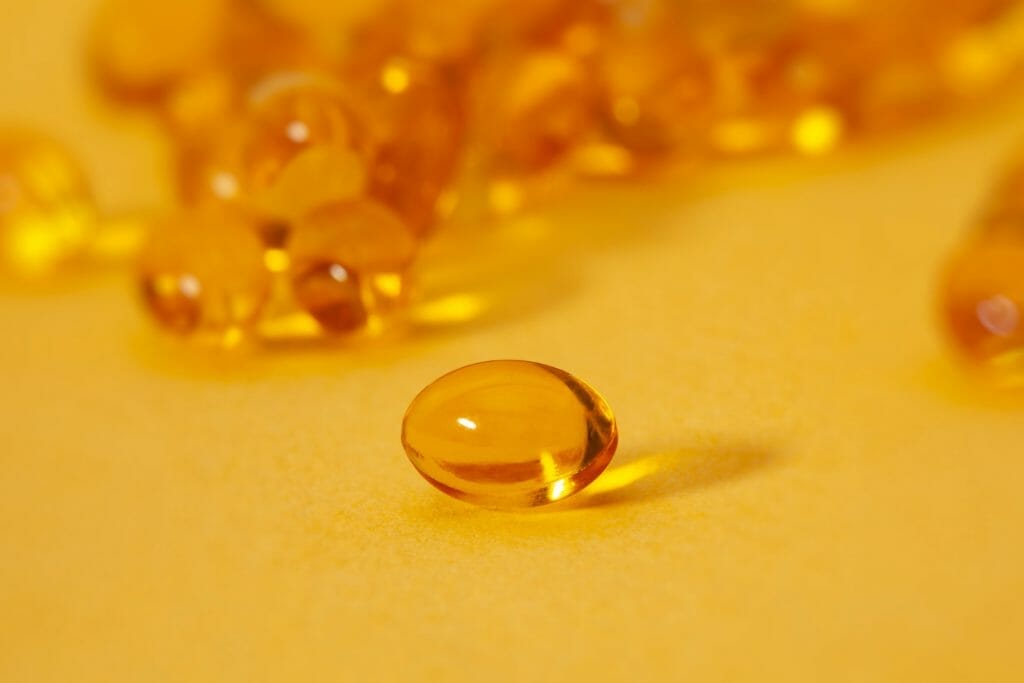
There are several supplements shown to be helpful for hormone balance and reducing PMS symptoms. These include vitamin B6, zinc, magnesium, probiotics, omega 3 fats and Gamma Linolenic Acid (GLA). A common herb used for hormonal imbalance, especially low progesterone, is vitex, or chasteberry. Check vitamin D levels and supplement as needed.
Try Acupuncture.
Acupuncture has been frequently used to treat PMS symptoms in Asian Countries. One study found that acupuncture was as effective as NSAID therapy for dysmenorrhea, a cycle with severe PMS symptoms, especially cramping.

To learn more, join Dr Elisabeth Philipps and Functional Nutritionist Christine Bailey MSc MIFM MBANT for our ‘Female Hormone Balance’ webinar on the 26th May 2020.

